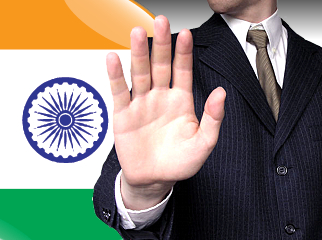 India’s Minister of Sport has rejected media suggestions that the spot-fixing scandal engulfing the country’s cricket world has led to him actively campaign for the central government to legalize sports betting. While Jitendra Singh copped to working with the Law ministry to craft legislation that would criminalize spot- and match-fixing, he disavowed reports that legalizing sports betting was part of that process. Singh claimed that betting is a matter for the states to regulate, which doesn’t explain why authorities routinely cite the central government’s Public Gambling Act of 1867 when they haul bookies off to jail.
India’s Minister of Sport has rejected media suggestions that the spot-fixing scandal engulfing the country’s cricket world has led to him actively campaign for the central government to legalize sports betting. While Jitendra Singh copped to working with the Law ministry to craft legislation that would criminalize spot- and match-fixing, he disavowed reports that legalizing sports betting was part of that process. Singh claimed that betting is a matter for the states to regulate, which doesn’t explain why authorities routinely cite the central government’s Public Gambling Act of 1867 when they haul bookies off to jail.
There are those who argue that the Public Gambling Act of 1867 already contains language that could exempt sports betting from its scope. The specific language reads: “Nothing in the foregoing provisions of this Act contained shall be held to apply to any game of mere skill wherever played.” This clause’s applicability to card games has been tested in court over the past few years, with the Madras High Court declaring in November 2011 that rummy was a game of skill, therefore police had no right to arrest its practitioners, even if they were playing for money. However, that decision was reversed on appeal in April 2012.
Sports lawyer Vidushpat Singhania told Gambling Law In India that he feels sports betting requires just as much skill as any card game – an opinion shared by the man whose name this site bears, as well as any Nevada bookie that bends over backward to avoid doing business with mega-sharp bettor Billy Walters – so why shouldn’t betting on sports be treated the same as betting on horseraces, which India already allows? Singhania believes “it is only fair that when betting on the skill of an animal and a human being is treated as a game of skill, there is absolutely no reason why an event involving betting solely on the skill of a human being should not be treated as a game of skill.”
If India were truly serious about combatting fixing, it would do well to listen to the European Sports Security Association (ESSA). The group just published its annual integrity report, which showed 109 alerts of possible chicanery involving its licensed bookmakers, of which only six were determined to be sufficiently serious to warrant referral to the relevant sports and regulatory authorities. That’s down from eight such incidents the previous year. ESSA Secretary General Khalid Ali said the figures demonstrated that legal betting systems have “actually created increased security” by adding “new layers of protection against fraud.”
The recent crackdown on cricket bookies across India won’t do much to eliminate the fixing issue, but it has had a negative effect on the bookies’ bottom lines. DNA India reported that in the state of Gujarat (population 60m), bookies that normally would handle around Rs 8b (US $142m) in wagers on the Indian Premier League managed to eke out a mere Rs 700m this year. However, Detection of Crime Branch inspector RR Sarvaiya suggested that the “betting market simply went into a sleeping mode” and will awaken the moment police turn their focus elsewhere. Or until the government finally gets wise and legalizes the activity.
